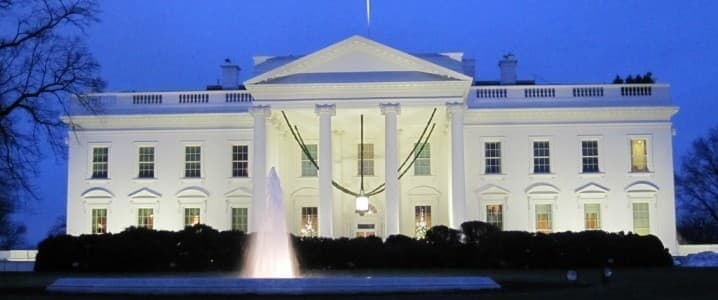The Biden administration stands ready to deploy its tools to address the latest increase in oil prices, a spokeswoman for the National Security Council said this week.
"We continue to work with producer and consumer countries and these steps have had real effects on prices and ultimately tools continue to remain on the table for us to address prices," Emily Horne said, as quoted by Reuters.
"We will continue to monitor prices in the context of global economic growth and engage our OPEC+ partners, as appropriate." Horne also said.
Last year, President Biden called on OPEC to increase production in response to rising crude prices, but the cartel declined. A harder stance followed, in which the White House said OPEC and Russia were contributing to higher bills for the American working class and again insisted that the extended oil cartel boost production by more than its originally agreed 400,000 bpd monthly.
"I do think that the idea that Russia and Saudi Arabia and other major producers are not going to pump more oil so people can have gasoline to get to and from work, for example, is not, is not, right," President Biden said in November.
"Gas prices, of course, are based on a global oil market. That oil market is controlled by a cartel. That cartel is Opec," Energy Secretary Jennifer Granholm said in November. "So that cartel has more say about what is going on."
The next tool the White House employed when all else failed was the decision to release up to 50 million barrels of crude from the strategic petroleum reserve—a move many analysts said would not have much of an impact on prices. Part of the amount has already been released.
OPEC and its partners, meanwhile, are facing an uphill battle to boost production even as much as necessary to fulfill their current quotas. Only a few OPEC members, notably Saudi Arabia, have the spare capacity to boost production much further, while others, including Russia, are having trouble with increasing crude production. This trouble is one of the reasons for the latest oil price rally, according to analysts.
By Irina Slav for Oilprice.com
ADVERTISEMENT
More Top Reads From Oilprice.com:
- Permian Oil Output Hits Record
- Drone Attacks And Invasion Fears Send Oil Prices Soaring
- Tight Physical Crude Market Points To Higher Oil Prices



















The other tool was to call on OPEC+ to increase its production beyond the already agreed 400,000 barrels a day (b/d) a month. But OPEC+ rejected these calls and stuck to its agreed production policies.
However, the quintessential question is whether OPEC+ can add to its current spare capacity to help balance the market in 2022. I believe it can to some extent with help from Saudi Arabia, Russia, UAE, Kuwait and Iraq but I doubt whether it can generate a spare capacity big enough to stem the continued surge of oil prices in the next few years particularly with oil market entering a supercycle.
The ultimate tool in the arsenal of the White House is to sue OPEC+ under the No Oil Producing and Exporting Cartels (NOPEC) Act of 2021. However, OPEC+ shouldn’t be unduly worried about the NOPEC bill. If it becomes a law and the United States tries to sue OPEC or any of its members, the organization could stop all its oil exports to the US. NOPEC has only jurisdiction in the United States but no extraterritorial jurisdiction under international law.
If, however, the United States persists with mounting law suits against OPEC or its members, then they should retaliate by withdrawing their investments and funds in the US and even threaten to replace the petrodollar with the petro-yuan in their oil transactions. That would be the biggest ever retaliation against the US.
Furthermore, OPEC isn’t a cartel. A cartel is defined as an association of manufacturers and suppliers whose goal is to increase their collective profits by means of price fixing, limiting supply, preventing competition or other restrictive practices.
When it comes to limiting oil supply, a true cartel like the “Seven Sisters” was able to do exactly that because it was virtually in control of global oil resources. OPEC has never been in such a situation. It only accounts for 42.6% of the global oil market with the rest of the oil-producing nations of the world accounting for 57.4%.
Dr Mamdouh G Salameh
International Oil Economist
Visiting Professor of Energy Economics at ESCP Europe Business School, London